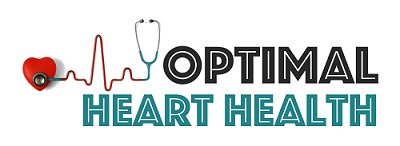Heart disease is the leading cause of death in the United States for both men and women, according to the Centers for Disease Control and Prevention (CDC). Heart disease is an umbrella term, as many conditions are considered heart disease, including coronary artery disease, heart valve disorders, and heart arrhythmias.
With this data, you would assume that senior citizens’ healthcare services are covered receiving heart disease treatment. So, the question is, does Medicare cover heart disease?
Does Medicare cover heart disease tests?
Doctors use a variety of tests to detect if you have heart disease, but first, your doctor will likely run some laboratory and blood tests to help detect cardiovascular abnormalities. Depending on your results, your doctor may require more tests. The results from these tests will help your doctor identify heart conditions or risk factors that may lead to a heart attack or stroke.
Medicare Part B covers cardiovascular screenings that check your blood cholesterol levels, lipids, and triglyceride levels. Medicare covers a cardiovascular screening in full every five years. If your doctor accepts Medicare assignment, then you will not have any out-of-pocket costs for your visit.
If an abnormality is found, your cardiovascular screening turns into a diagnostic test. Medicare will still cover the diagnostic test. However, your Part B deductible, $203 in 2021, and coinsurance will apply.
Medicare coverage for cardiac rehabilitation programs
Cardiac rehabilitation (cardiac rehab) is an outpatient program that helps improve your health and recover from a heart attack, surgery for heart disease, and other forms of heart disease. There are specific qualifications you must meet to have access to cardiac rehab. A few of the qualifications are:
- Heart valve repair or replacement
- Heart or heart-lung transplant
- Coronary artery bypass surgery
- Coronary stent
When you participate in cardiac rehab, you will receive cardiovascular education, counseling, emotional support, and supervised exercise. The American Heart Association recommends cardiac rehab, as research has found that cardiac rehab programs can reduce the risk of death from heart disease and lower the risk of future heart complications.
Medicare Part B covers some cardiac rehabilitation programs if your doctor considers it medically necessary. However, you will pay the Part B deductible and coinsurance if you participate in this program.
If you undergo cardiac rehab inside the hospital as an inpatient, you would pay the Part A deductible, $1,484 in 2021, and coinsurance for the Medicare-approved amount.
Cardiovascular behavioral therapy and Medicare
Doctors occasionally recommend cardiovascular behavioral therapy. This type of therapy is designed to lower your risk for cardiovascular disease. Behavior therapy usually involves regular blood pressure checks and individual counseling with your provider to help you maintain healthy eating and exercise habits.
Medicare Part B covers one cardiovascular behavioral therapy session each year. If your doctor accepts Medicare assignment, this therapy session will be at no cost to you.
Does Medicare cover heart disease medications?
People often take prescription medications for heart disease. However, Medicare Part A and Part B do not cover most prescription medications you take at home. If you need prescription drug coverage, you will need to purchase a standalone Medicare Part D plan.
Part D plans are sold through private insurance carriers, and each carrier sets its own drug formulary. A drug formulary is a list of prescription drugs that are covered under the plan and the amount you pay for each.
If you have heart disease and take daily medication, you will want to find a Part D plan that covers your prescription drugs.
Conclusion
Medicare does cover heart disease, as well as the rehabilitation and therapy sessions that may benefit you and your condition. With heart disease being the leading cause of death in America, you should seek medical attention if you begin to develop chest pain, shortness of breath, or pain in your neck, jaw, or back.


